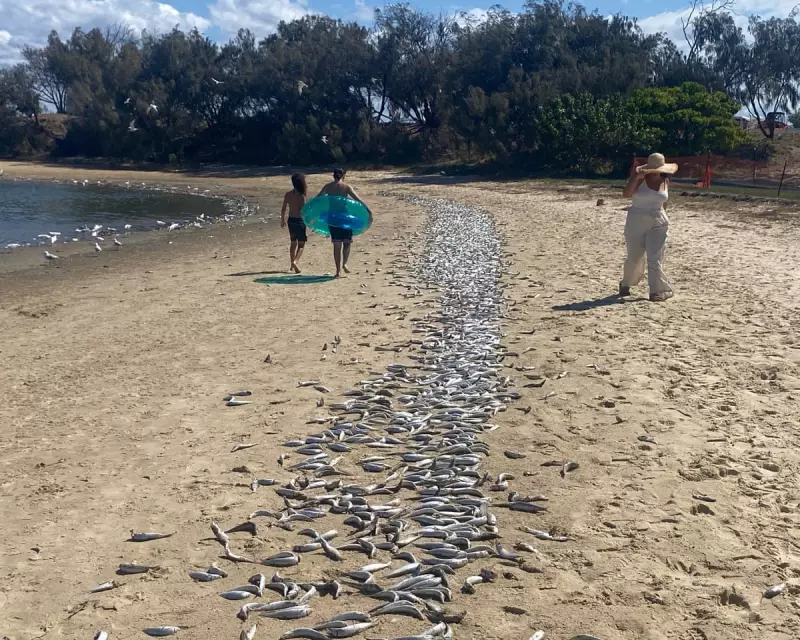
A chilling ecological mystery has unfolded along Queensland's famous Gold Coast, where scientists are racing to understand what caused a devastating mass fish kill that has left local waterways littered with marine casualties.
The Scene of Destruction
Marine researchers and environmental authorities were confronted with a disturbing sight this week as countless dead fish washed ashore in what's being described as one of the region's most significant marine mortality events in recent memory. The scale of the incident has prompted urgent scientific investigation and community concern.
Heatwave Emerges as Prime Suspect
While the exact cause remains officially undetermined, preliminary scientific assessment points toward an ongoing marine heatwave as the most probable culprit. According to marine experts, elevated water temperatures can create a perfect storm of ecological stress by reducing oxygen levels in the water while simultaneously increasing the metabolic demands of marine life.
The Science Behind the Crisis
Marine heatwaves create a double-edged sword for aquatic ecosystems:
- Warmer water holds significantly less dissolved oxygen, creating suffocating conditions
- Increased temperatures accelerate fish metabolism, raising their oxygen requirements
- The combination creates an oxygen debt that marine life cannot survive
- Multiple stress factors may be working in concert to exacerbate the situation
Investigation Continues Amid Environmental Concerns
Scientific teams have emphasised that while the marine heatwave theory appears strongest, comprehensive water quality testing and environmental analysis are ongoing. Researchers are examining multiple potential contributing factors, including possible algal blooms or other water quality issues that might have compounded the heatwave's effects.
Broader Climate Implications
This distressing event serves as a stark reminder of how climate-driven phenomena are increasingly impacting marine ecosystems. As ocean temperatures continue to rise globally, such mass mortality events may become more frequent, posing significant challenges for coastal communities and marine biodiversity alike.
The Gold Coast incident represents not just a local environmental tragedy but potentially a warning sign of broader oceanic changes that demand attention and action from both scientific communities and policymakers.





